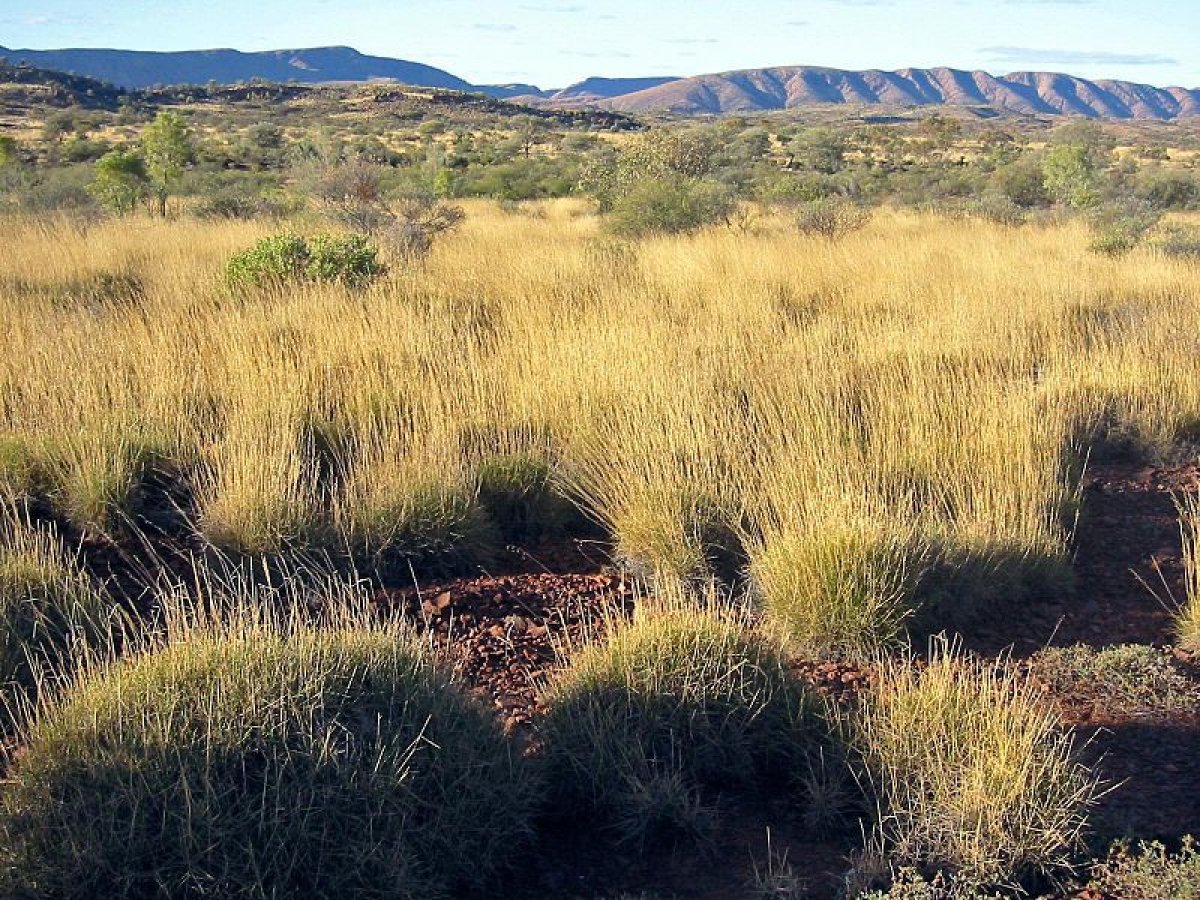
Researchers in Australia made an unusual finding after accidentally realizing a newly discovered species of grass tastes just like salt-and-vinegar potato chips.
The spinifex grass, found in Australia's outback, was one of eight species discovered by a team of scientists from the University of Western Australia.
A paper describing the new species, published in the journal Australian Systematic Botany, explains that spinifex grass is ecologically important as a food source and habitat for animals across arid areas of Australia.
Its drought-resistant properties mean spinifex grasses cover nearly 30 percent of the outback, including areas of South Australia, Northern Territory, western Queensland and northwestern New South Wales.

Its unique flavor—which is attributed to minute droplets on its stems—was spotted by one of the researchers when he licked his hand after holding it.
"We were doing late-night experiments, handling specimens of that species," Matthew Barrett from the University of Western Australia told Australia's ABC News. "Someone licked their hand at some point and tasted that flavor.
"It looks pretty inconspicuous when you first get to it, but if you look at it very closely it has very, very minute sparkling droplets on the stems. When you lick them, they taste like salt-and-vinegar chips."
Centuries ago, the resin of spinifex was used by native aboriginal Australians to create a form of superglue that was used to help fasten stone tips to wooden spears.
More recently, scientists have hailed spinifex for its potential to revolutionize the plastics industry thanks to its unique properties.
Spinifex grasses already have commercial potential, ranging from rehabilitating mine sites, to manufacturing the world's strongest, thinnest condoms. The strength of the grass's fibers mean a powdered version of it can be added to latex to produce "super condoms" that are up to 40 percent stronger than the current condoms on the market.
The abundance of spinifex means there is enough of it to make the powder to go into every condom on the planet. Unfortunately, the production process means the taste of the latest species could not be transferred to create flavored condoms.
The newly discovered spinifex is one of at least 64 different species found throughout Australia's outback.
"In the Pilbara alone there are about 30 different species that we now recognize, so there's a lot more out there than you think," Barrett said. "But there's still at least another 30-odd species that have to be described, and they are just the ones that we know about."
Uncommon Knowledge
Newsweek is committed to challenging conventional wisdom and finding connections in the search for common ground.
Newsweek is committed to challenging conventional wisdom and finding connections in the search for common ground.
About the writer
Anthony Cuthbertson is a staff writer at Newsweek, based in London.
Anthony's awards include Digital Writer of the Year (Online ... Read more
To read how Newsweek uses AI as a newsroom tool, Click here.






